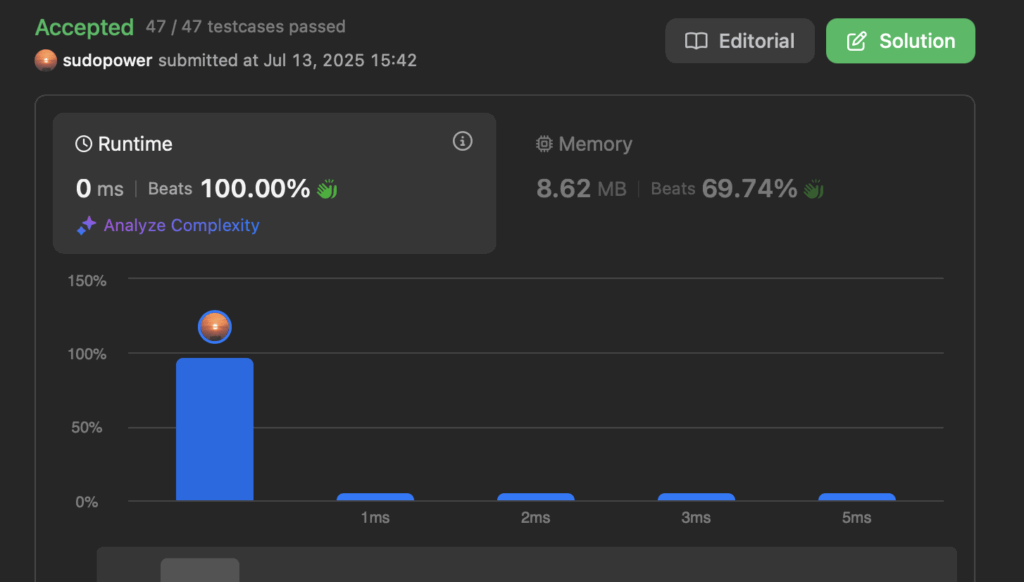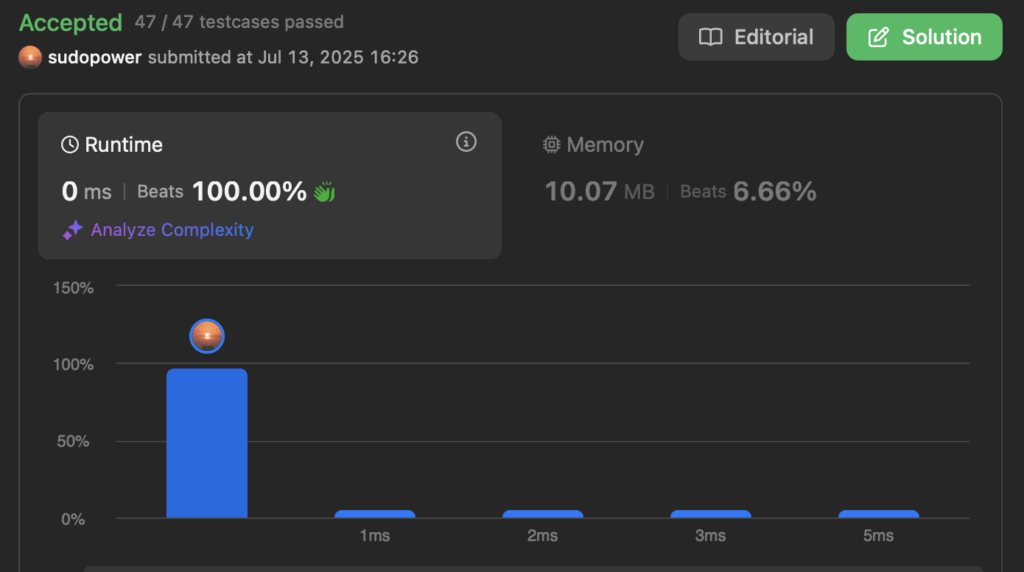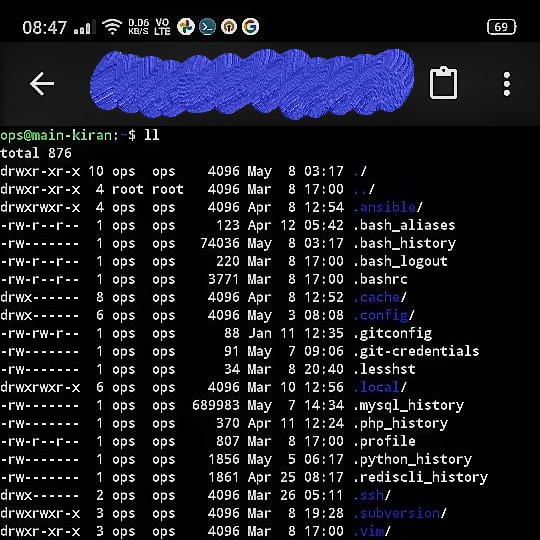Purpose:
Find element matching some condition in a sorted list of elements
Logic:
In a sorted list, look at the middle element and then you only have to search to your left of right, halving the search space. Repeat this in a loop, on each iteration the search space is halved.
Condition:
List must be sorted in either increasing or decreasing order
Algorithm:
- Use 3 pointers for start, end and middle indices of the list
- Loop until start index is less than end index
- Check middle element if equal to target element
- If list sorted in increasing order
- If middle element greater than target, look to the left
- Set end = mid-1 and mid = (start+end)/2
- If not, look to the right
- Set start = mid+1 and mid = (start+end)/2
- If middle element greater than target, look to the left
- If list is sorted in decreasing order
- Just reverse the comparison in Step 4.1 and look to the right
Code: Iterative
// returns index elem was found at and true if found and no of searches required
func binarySearch(arr []int, target int) (int, bool, int) {
var start, end, mid, searches int
end = len(arr) - 1
mid = len(arr) / 2
for start <= end {
searches++
if arr[mid] == target {
return mid, true, searches
}
// if increasing order of elements "<" else ">"
if arr[mid] < target {
start = mid + 1
} else {
end = (mid - 1)
}
mid = (end + start) / 2
}
return 0, false, searches
}

Code: Recursive
func binarySearch(arr []int, target, start, end int) int {
if start>end{
return -1
}
mid := start + (end-start)/2
if arr[mid] == target {
return mid
}
if arr[mid] < target{
return searchRecursive(arr,target,mid+1,end)
} else {
return searchRecursive(arr,target,start,mid-1)
}
return -1
}

Test:
IP: arr=[1,2], target=2
OP: found at: 1 searches: 1
IP: arr=[1,2,3,4], target=4
OP: found at: 3 searches: 2
IP: arr=[1,2,3,4,5,6,7,8], target=8
OP: found at: 7 searches: 3
IP: arr=[1,2,3,4,5,6,7,8,9,10], target=10
OP: found at: 9 searches: 4
IP: arr=[1,2,3,4,5,6,7,8,9,10,11,12,14,14,15,16], target=16
OP: found at: 15 searches: 4
IP: arr=[1,2,3,4,5,6,7,8,9,10,11,12,14,14,15,16.....32], target=32
OP: found at: 31 searches: 5
Time and Space Complexity:
// returns index elem was found at and true if found and no of searches required
func binarySearch(arr []int, target int) (int, bool, int) {
var start, end, mid, searches int // 1 time and 4 space units
end = len(arr) - 1 // 1 time
mid = len(arr) / 2 // 1 time
for start <= end { // k+1 times, 0 space
searches++ // everything inside k times, no extra space
if arr[mid] == target {
return mid, true, searches
}
if arr[mid] < target {
start = mid + 1
} else {
end = (mid - 1)
}
mid = (end + start) / 2
}
return 0, false, searches // 1 time, 0 space
}
/*
Space Complexity: O(1) - no additional space is used that grows with input size
Time Complexity:
Lets trace the values of k for and find an expression for the time complexity.
for n=2 worst case k = 1
for n=4 worst case k = 2
for n=8 worst case k = 3
for n = 10 worst case k = 4
for n = 16 worst case k = 4
for n = 32 worst case k = 5
n = 2^k
k = log2(n)
*/
Time complexity: O(log2n)
Space complexity: O(1) excluding input
Try it : Link
// You can edit this code!
// Click here and start typing.
package main
import "fmt"
func main() {
target := 32
var arr []int
for i := range target {
arr = append(arr, i+1)
}
if idx, found, searches := binarySearch(arr, target); found {
fmt.Printf("found at: %d searches: %d ", idx, searches)
} else {
fmt.Println("not found")
}
}
// returns index elem was found at and true if found and no of searches required
func binarySearch(arr []int, target int) (int, bool, int) {
var start, end, mid, searches int
end = len(arr) - 1
mid = len(arr) / 2
order := arr[start] < arr[end]
for start <= end {
searches++
if arr[mid] == target {
return mid, true, searches
}
// if increasing order of elements "<" else ">"
if (order && arr[mid] < target) || (!order && arr[mid] > target) {
start = mid + 1
} else {
end = (mid - 1)
}
mid = start + (end - start) / 2 // since start+end can exceed integer range for large inputs
}
return 0, false, searches
}






